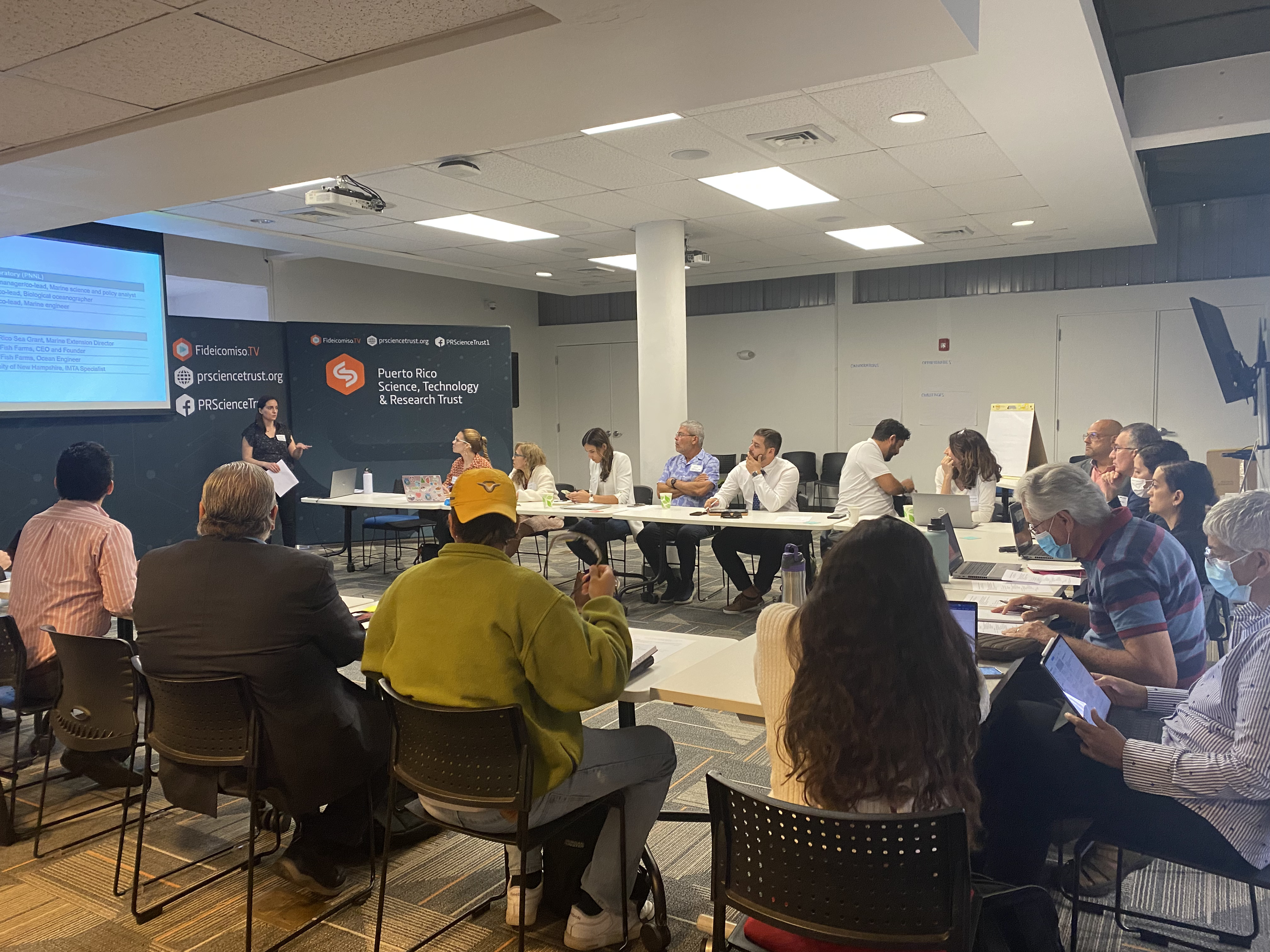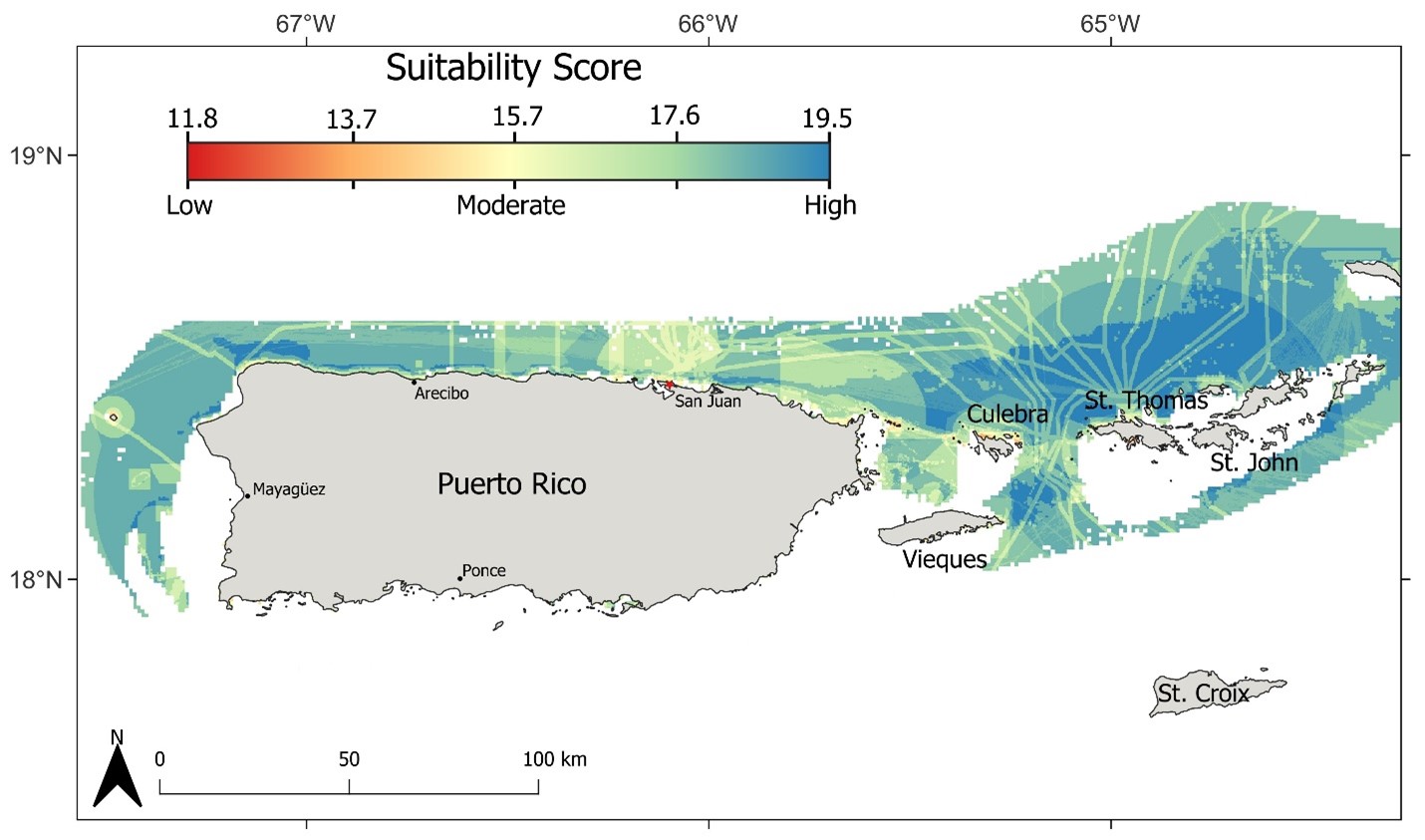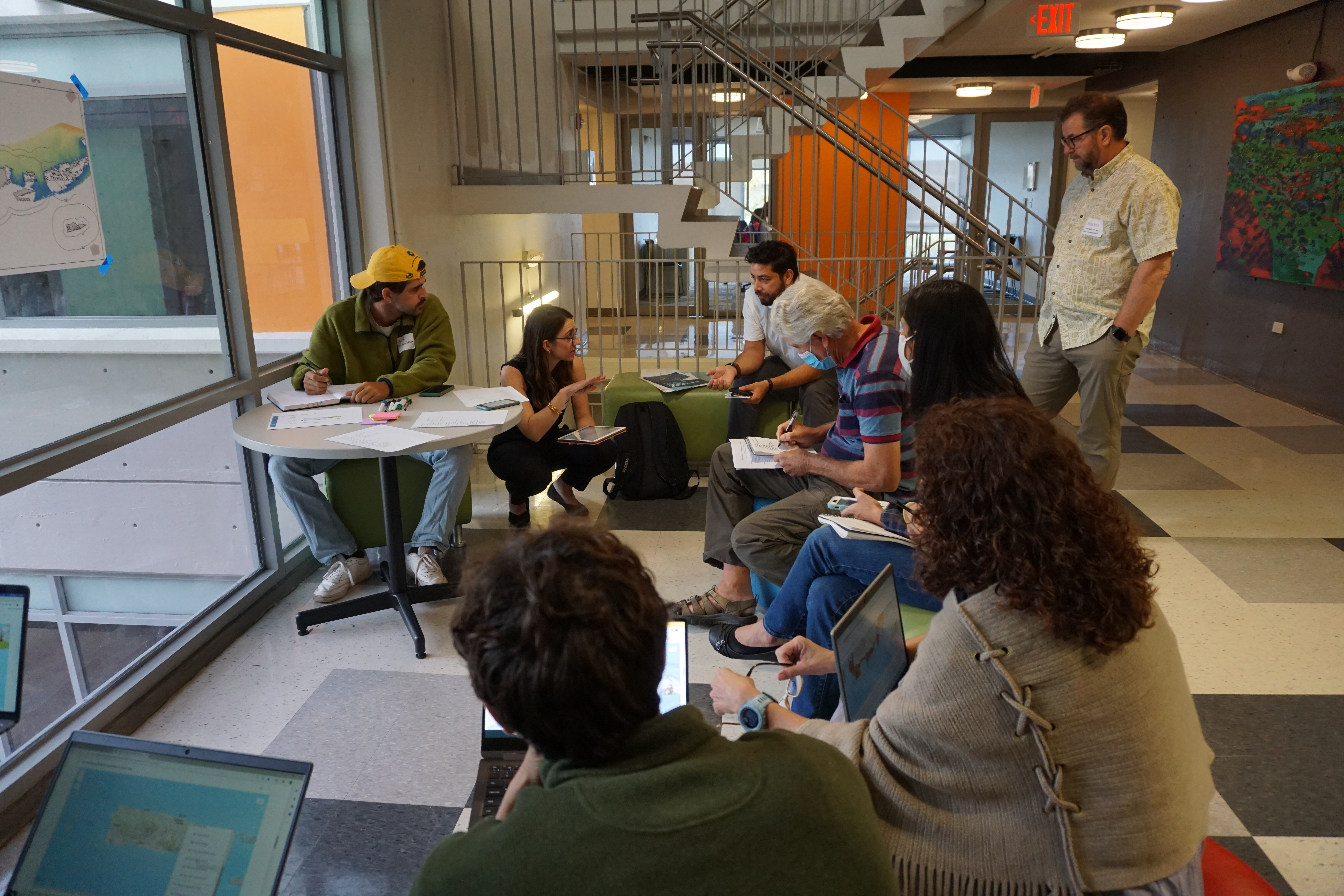
Wave Energy and Aquaculture Co-Location in Puerto Rico
This research study examines the potential for wave energy to be co-located with integrated multi-trophic aquaculture (IMTA) in Puerto Rico as a sustainable approach to meet the growing demand for seafood.
IMTA is a restorative aquaculture practice where multiple species (e.g., seaweed, shellfish, finfish) are grown together. This allows the natural processes of each species―such as shellfish filtering the water and seaweed absorbing carbon dioxide and excess nutrients―to help maintain balance in the ecosystem.
Using wave energy to power offshore IMTA in Puerto Rico could help meet growing seafood demand and increase the use of renewable energy sources.
Project Goals

This project has three primary components:
- A spatial analysis to identify opportunities for co-locating wave energy with offshore IMTA.
- Environmental monitoring to understand the potential for wave energy to power aquaculture at suitable locations.
- Outreach and engagement with stakeholders in Puerto Rico to gain knowledge and local insight into the benefits, challenges, and goals of community members.
Spatial Analysis
The team conducted a spatial analysis to examine environmental, regulatory, and logistic parameters and assess the suitability for both wave energy and offshore IMTA off the coast of Puerto Rico. Using these parameters, the team developed a heatmap to show low, moderate, and high suitability for co-location.
View the parameters included in the spatial analysis and the suitability heatmap via an interactive story map.

Environmental Monitoring
The environmental monitoring was completed in collaboration with Conservación ConCiencia and local fishers off the coast of Culebra from July 2023 to January 2024. Measurements of environmental parameters were necessary to characterize a representative suitable area for co-location that included wave height, wave period, current speeds, and wind speeds.
While no co-located project is planned in Puerto Rico at this time, this fieldwork demonstrates the necessary tools to characterize a suitable area and identify the next steps in planning for co-location.
Outreach and Engagement

The team engaged with local stakeholders and communities in Puerto Rico to understand the feasibility for a potential co-located wave energy and IMTA operation, discuss potential uses for marine energy, identify potential effects of a co-located project, and understand community perspectives and needs related to aquaculture and marine energy.
Broader Impacts
This research helps advance the marine energy industry by improving understanding of potential synergies with the aquaculture industry. Additionally, it demonstrates the potential for marine energy to support the energy independence and resilience of remote and coastal communities.
Additionally, similar projects evaluating the potential for co-location of marine energy and aquaculture have been conducted in Hawaii and California, Washington, and at kelp farms across the United States.
Resources
Publication on Suitability for co-location of offshore aquaculture and wave energy in the US Caribbean.
Webinar on Offshore Aquaculture and Wave Energy in Puerto Rico, September 2024 - Slide Deck